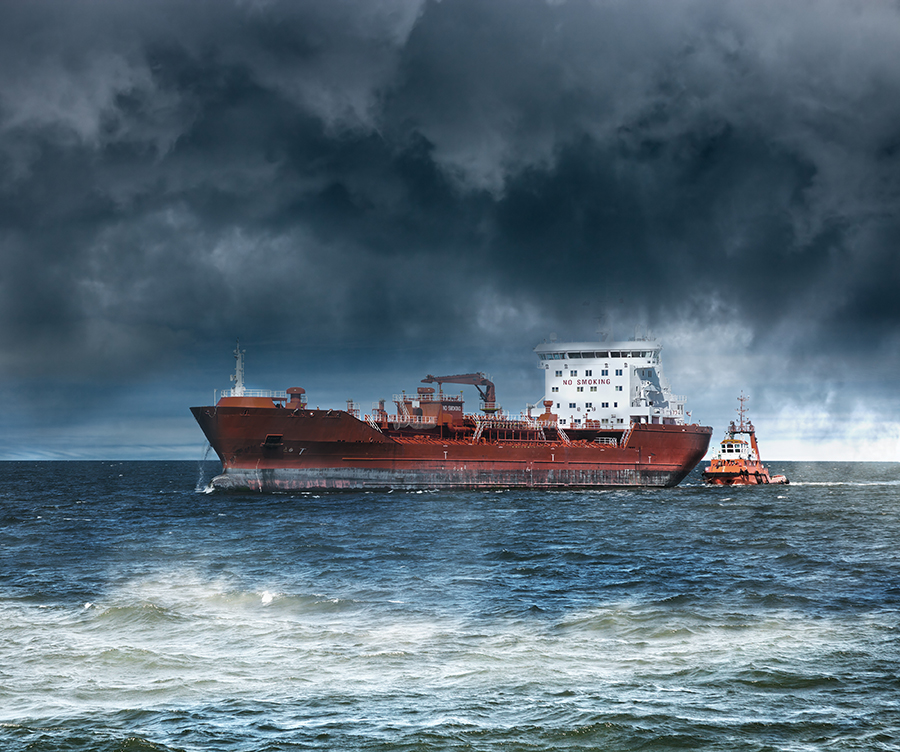Nearly three-quarters of vessels active in international trade that do not list their ownership information are likely to have potential ties to illicit activity, fresh research has found.
Analysis of nearly 70,000 vessels – including tankers, bulk carriers and container ships – shows that 23,000 had links to watchlists or engaged in deceptive shipping practices such as dark activity during 2022, finds an April report published by Global Financial Integrity, the Institute of International Banking Law & Practice (IIBLP) and S&P Global.
For vessels whose owners are not listed by the International Maritime Organization (IMO), as many as 70% were found to have connections to sanctioned countries, had switched off or manipulated location signals, or had carried out ship-to-ship transfers in high-risk jurisdictions.
“Stated more clearly as an actionable item for financial institutions, if the vessel transporting financed goods reveals ‘unknown’ in the owner field following a public search of IMO information, then the vessel carries a greater than 69% chance of being higher risk and should be avoided,” it says.
Despite these risks, the report’s authors say banks facilitating international trade do not typically prioritise ownership information when screening vessels.
“Our impression is that checking vessel ownership is fairly low down the checklist in terms of compliance processes,” says Byron McKinney, product management director for trade finance and compliance solutions at S&P Global Market Intelligence, speaking to GTR.
Michael Byrne, chief executive of the IIBLP, adds: “We don’t really see widespread understanding of this issue, and I think that’s partly because no one had ever pulled this data together before.”
The report identifies around 8,000 vessels involved in trade that do not list ownership information, equivalent to around 12% of the global fleet.
Among those, fewer than a third are deemed “compliant” – defined as not appearing on authorities’ watchlists, not having engaged in deceptive shipping practices and not having conducted a sanctioned port call.
Of those with a listed owner, that figure rises to nearly 88%, and McKinney says some of the remaining 12% of vessels do list their ownership but are linked to non-cooperative jurisdictions, and so would likely be detected by standard screening processes.
For banks involved in maritime trade, one risk is exposure to sanctioned activity. The US Office of Foreign Assets Control, the country’s sanctions regulator, has placed growing pressure on banks, traders and shipping companies to analyse vessel behaviour in order to detect attempts to evade restrictions on trade.
In an alert issued last week, the authority said it believed US companies may be unwittingly exposed to trade in Russian oil above US$60, breaching the price cap imposed by western governments in response to the country’s invasion of Ukraine.
Tom Cardamone, Global Financial Integrity’s president and chief executive, said at the report’s launch that the findings could also help pinpoint illicit trade in restricted goods or counterfeit items.
“Whether it’s illegal, unreported and unregulated fishing, illegal logging, illegal mining or counterfeiting… we’re looking at over a trillion dollars in illegal trade in any particular year,” he said.
“Given that 85% to 90% of international trade is delivered by ship… and add that to the fact that only about 2% of containers are checked in any particular year, the risks pile on top of one another.”
Yet the report finds vessels with unknown owners called at US ports twice a day on average last year, presenting “a security risk as well as an opportunity for financial crimes to occur”.
Putting vessel behavioural analytics tools in place has proven a challenge for some lenders – particularly at the smaller end of the market. The report recommends using ownership information as a relatively straightforward option for those with less spending power.
“If you’re one of the larger trade banks, you’re probably in a position where you can go out and purchase a solution to screen for these kinds of risks,” says IIBLP’s Byrne.
“For smaller banks, margins are tight and you might not have a lot of staff time you can devote to those efforts. In that context, just being able to check whether a vessel’s ownership is known or unknown could be a really useful starting point.”
The report adds: “All financial institutions should at least consider vessel ownership as a primary risk indicator.”
The report also recommends that the IMO requires ownership information as part of a vessel’s registration, and suggests a register of ships’ ultimate beneficial owners is established.
In the case of the US, it says customs authorities should require all vessels to disclose ownership information before being allowed to visit ports.







